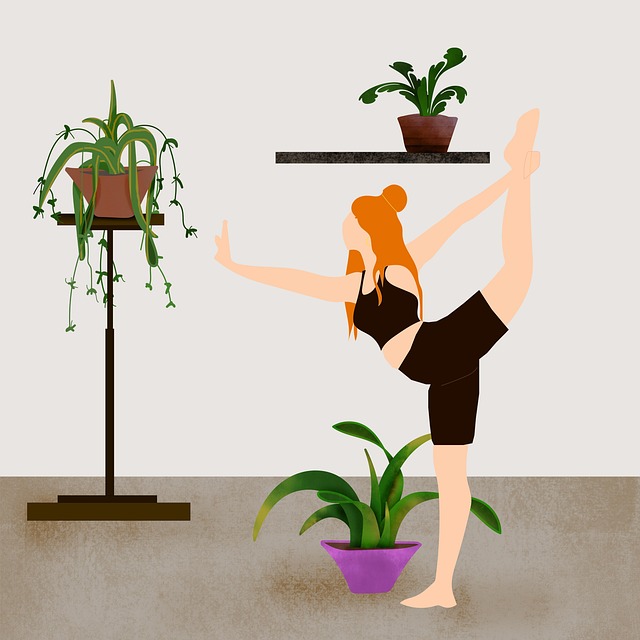Cognitive-behavioral techniques (CBT) leverage the mind-body connection to build resilience. Meditation, a key CBT tool, enhances self-awareness and promotes calmness, enabling individuals to observe thoughts without judgment and break harmful thought cycles. Regular meditation practice cultivates mindfulness, reduces stress, boosts focus, and increases emotional resilience, contributing to holistic wellness. Integrating CBT with consistent meditation improves mental fortitude and clarity through positive thought replacements, enhanced decision-making, and emotional balance, ultimately strengthening overall well-being.
Discover the power of cognitive-behavioral techniques for cultivating mental strength and clarity. This comprehensive guide explores how these evidence-based strategies can transform your mindset and enhance overall well-being. From understanding the fundamentals of cognitive behavioral therapy (CBT) to leveraging meditation for stress reduction, you’ll learn practical ways to integrate these techniques into daily life. Uncover a holistic approach that intertwines mindfulness with other practices, offering a balanced path to optimal mental health and enhanced quality of life.
- Understanding Cognitive Behavioral Techniques
- The Role of Meditation in Enhancing Mental Strength
- Practical Application: Integrating into Daily Life
- Holistic Wellness: A Comprehensive Approach
Understanding Cognitive Behavioral Techniques

Cognitive-behavioral techniques (CBT) are a powerful set of tools for cultivating mental strength and clarity. At their core, CBT focuses on the intricate connection between our thoughts, feelings, and behaviors, aiming to identify and challenge negative or unhelpful thought patterns that can lead to distress and impair our ability to make sound decisions. By understanding this dynamic, CBT empowers individuals to reframe negative thoughts, replace them with more realistic and positive ones, and subsequently alter their emotional responses and behaviors.
Meditation for holistic wellness plays a significant role in CBT, serving as a practice to enhance self-awareness and promote mental calmness. Regular meditation helps individuals observe their thoughts without judgment, fostering a greater sense of detachment from negative or recurring thought patterns. This increased awareness allows for better recognition of cognitive distortions, making it easier to challenge and replace them with more adaptive thinking. As a result, meditation not only supports the process of CBT but also contributes to overall holistic wellness by reducing stress, improving focus, and enhancing emotional resilience.
The Role of Meditation in Enhancing Mental Strength

Meditation plays a pivotal role in bolstering mental strength and clarity, serving as a powerful tool within the realm of cognitive-behavioral techniques. By fostering mindfulness and self-awareness, regular meditation practices enable individuals to navigate life’s challenges with resilience and composure. This ancient practice helps calm the mind, reducing the impact of stressful thoughts and promoting emotional balance.
In the context of holistic wellness, meditation transcends mere relaxation; it empowers people to develop a deeper understanding of their thoughts and emotions. This heightened awareness allows for better coping strategies when faced with adversity, fostering mental clarity and enhancing overall well-being. Through consistent meditation, individuals can cultivate a sense of inner peace, enabling them to approach life’s complexities with steadfast focus and resilience.
Practical Application: Integrating into Daily Life

Integrating cognitive-behavioral techniques into daily life is a powerful way to enhance mental strength and clarity, especially when coupled with practices like meditation for holistic wellness. Start by identifying negative thought patterns and replacing them with more positive, realistic alternatives. For example, if you tend to ruminate on failures, challenge these thoughts by considering what you learned from the experience and focusing on your achievements. Regularly practicing mindfulness through meditation helps quiet the mind and improves focus, making it easier to navigate challenging situations without reacting impulsively.
Incorporating these techniques into your routine requires dedication and patience. Begin with small steps, such as dedicating just 10 minutes a day to meditation or using a journal to track negative thought patterns. Gradually increase the duration and complexity of these practices as you become more comfortable. Consistency is key; over time, these cognitive-behavioral strategies will become second nature, leading to improved mental resilience and overall wellness.
Holistic Wellness: A Comprehensive Approach

Holistic wellness is a comprehensive approach that recognizes the intricate connection between our mental, emotional, and physical health. Unlike traditional treatment methods that often focus solely on addressing symptoms, cognitive-behavioral techniques for mental strength and clarity embrace this holistic perspective. By integrating practices like meditation for holistic wellness, individuals can achieve a deeper sense of well-being.
Meditation serves as a powerful tool within this framework, enabling people to cultivate mindfulness and self-awareness. Regular meditation practice allows one to observe their thoughts and emotions without judgment, fostering a greater understanding of their mental processes. This heightened awareness is crucial for identifying negative thought patterns and replacing them with more positive, constructive ones—a core principle of cognitive-behavioral therapy (CBT). As a result, individuals can develop enhanced emotional resilience, improved decision-making skills, and a clearer sense of purpose, ultimately contributing to sustained mental strength and clarity.
Cognitive-behavioral techniques, coupled with practices like meditation for holistic wellness, offer a powerful pathway to mental strength and clarity. By understanding how our thoughts influence our emotions and behaviors, we can begin to navigate life’s challenges more effectively. Meditation serves as a cornerstone in this approach, fostering mental resilience and promoting a sense of calm amidst the chaos. Integrating these techniques into daily routines allows for lasting improvements in mental health and overall wellness.
